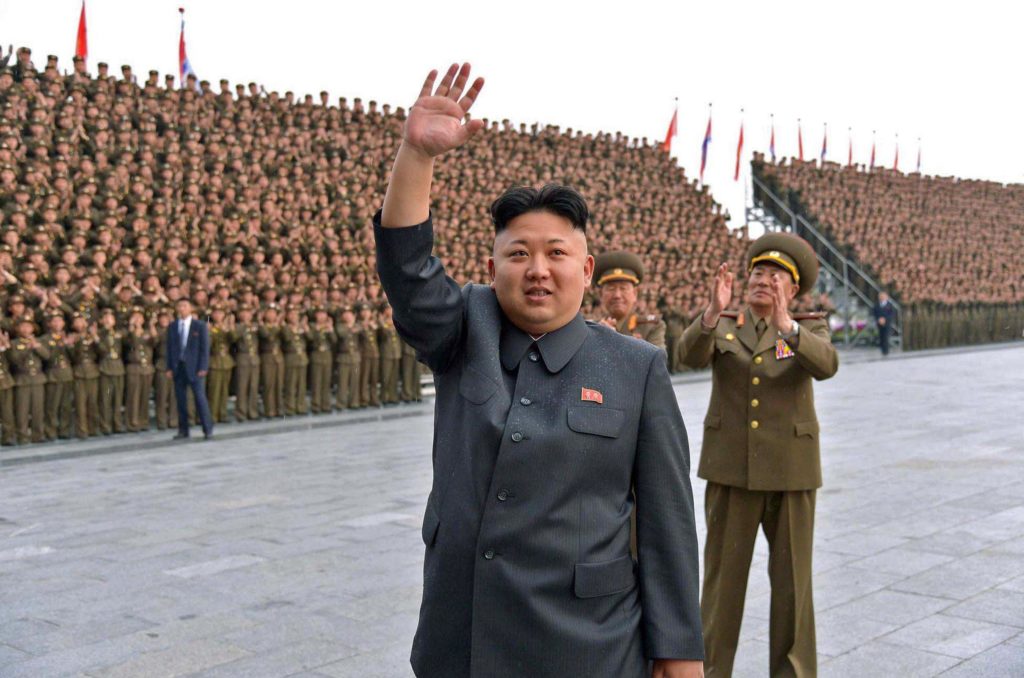UPDATES
The Iranian link in the North Korean nuclear test
January 13, 2016 | Sharyn Mittelman

Escalating tensions in the East Asia, North Korea claimed to have tested a hydrogen bomb on January 6, its fourth nuclear test. To show solidarity with South Korea and Japan, the US responded days later by sending a B-52 bomber jet to fly over Osan, South Korea, flanked by South Korean F-15 fighter jets and US F-16 fighter jets.
Despite scepticism as to whether the nuclear test was actually a hydrogen bomb, the test indicates that North Korea has been advancing its nuclear weapons program quietly, while the world’s attention has been fixed on the nuclear program of another country – Iran. However, some analysts believe that Iran may also be benefitting from North Korea’s nuclear program given that the two countries have long had extensive cooperation on both nuclear development and missile research. For instance, North Korea could share its data from its nuclear tests with Teheran – and if the test was of a hydrogen bomb, this could possibly help Iran to build similar weapons.
North Korea is known to have supported Iran’s nuclear program, providing both advice and experts. For example, Gordon Chang of the Daily Beast noted that Iranian officials, including Iranian nuclear program head Mohsen Fakhrizadeh, were present during North Korea’s three previous nuclear tests – in 2006, 2009, and 2013.
Moreover, as Simon Henderson of the Washington Institute has highlighted, there are overlaps between Iranian and North Korean-produced ballistic missiles:
“Both Pakistan and Iran manufacture and operate versions of the North Korean Nodong missile, which has a range of around 1,000 miles and is capable of carrying a nuclear warhead. In Pakistan the missile is known as the Ghauri and forms part of the country’s strategic nuclear force. Iran calls its version the Shahab-3 and has developed a more advanced variant named Emad…
“Despite the nuclear accord with the United States and longstanding international restrictions on its ballistic missile activities, Iran continues to develop missiles of various types. It was the recent testing of an Emad type that violated a UN Security Council resolution and was poised to trigger new U.S. sanctions on Iran last week, until a sudden decision making U-turn in Washington. The United States is also concerned about sales of North Korean missile equipment to Iran, as well as the presence of Iranian technicians in North Korea, where they are working on a missile booster.”
North Korean test data would be very useful to Iran if made available, as Armin Rosner of Business Insider noted, “Testing data could include information about the design and yield of the device detonated – or about the size and configuration of the bomb’s uranium hemisphere or plutonium core. Testing data could indicate the weight and shape of the nuclear device, its triggering mechanisms, or the warhead’s material composition.”
There are also concerns that Iran could effectively “outsource” its nuclear program to North Korea, while its own nuclear program is placed under the microscope. As Jonathan Tobin wrote in Commentary:
“Reports about extensive nuclear cooperation between the two rogue states haven’t been verified since we have no way of knowing exactly what goes [on] inside North Korean nuclear facilities. But experts told Congress last July that it was likely that the Iranians would be able to transfer billions in cash on an annual basis to the North Koreans to help pay for nuclear tests that could be conducted in the Hermit Kingdom without worries about United Nations inspectors being able to detect them. Indeed, the nuclear deal was silent about Iranian-North Korean relations making it easy for Tehran to continue banned nuclear work on the side via outsourcing to another rogue regime while other advanced nuclear research was carried out openly with U.S. acquiescence.
“The notion of North Korean involvement with Middle East threats is not theoretical. In addition to their ties with Iran, they were behind the Syrian nuclear program that was short-circuited by an Israeli bombing mission in 2007.”
Last July, Iran agreed to a nuclear deal with six world powers (known as the Joint Comprehensive Plan of Action), which aimed to limit Iran’s nuclear program for at least the next ten years in exchange for international sanctions relief. However, neither the Iran nuclear deal nor the Nuclear Non-Proliferation Treaty appears to include a provision against receiving data on nuclear tests from third party sources like North Korea.
The implementation of the Iran deal was to be dependent upon an investigation by the International Atomic Energy Agency (IAEA) into the possible military dimensions of Iran’s nuclear program, under the IAEA/Iran Roadmap. The IAEA report in December found that Iran had been engaged in nuclear weaponisation work until 2009. However, many analysts have criticised the report for its incomplete information, as Iran did not provide the IAEA with a full declaration on its past nuclear weapons related activities, or provide the necessary transparency and cooperation required for the IAEA to effectively conclude its investigation, such as unrestricted access to the Parchin site, thought to be the location of Iran’s key explosives testing laboratory for the program. Despite Iran’ s general obfuscation and stonewalling of the IAEA, which is reflected in the report, the US has said that the Iranian nuclear deal remains on track for implementation, which means that billions in sanctions relief will soon follow.
The North Korea/Iran link remains one to watch. Both regimes’ nuclear programs represent a dangerous threat to international peace and security and both regimes remain close allies looking to support each other’s nuclear aspirations, and there is no sign that last year’s nuclear deal has in any real sense changed this reality.
Sharyn Mittelman
Tags: Asia, Iran, North Korea





